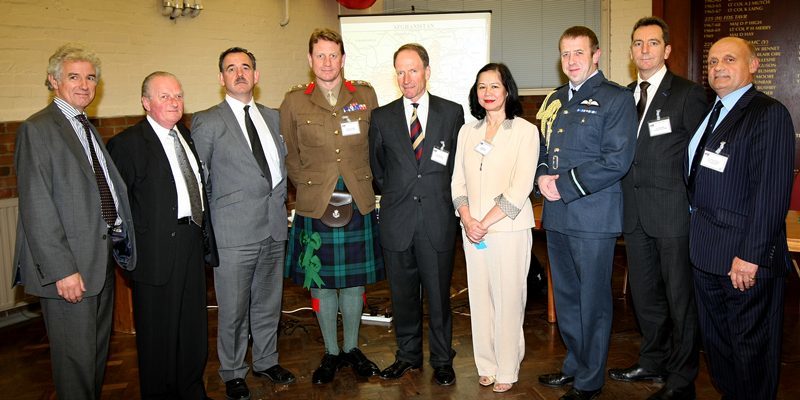A Ninewells Hospital doctor has revealed the battle to save lives in the busiest accident and emergency department in the world.
Anaesthetist Iain Levack left his regular job to serve in the military operating theatres of Camp Bastion in Afghanistan last year. He will be heading back in the spring to the desert hospital where every day a casualty arrives with both legs and an arm blown off.
Lieutenant Colonel Levack is the officer commanding the Dundee Squadron of 205 (Scottish) Field Hospital, a reserve unit that sends doctors, nurses and other medical support professionals to assist the regular forces in war zones.
A veteran of Kosovo and Iraq, as well as the campaign in Afghanistan, Lt Col Levack gave a graphic account of the Camp Bastion medical teams’ work to Tayside employers who release their staff to serve in the reserve forces.
He left the employers in no doubt of how important their support and co-operation was, allowing their staff to save the lives of soldiers and civilians whose lives would “bleed out” of them were it not for the skilled medical teams in the desert hospital.
He described how snatch teams go in and airlift casualties from the front line.
The on-board medics give life-preserving treatment while the helicopters head back to Camp Bastion.
There, operating teams amputate shredded limbs and patch up soldiers before they are flown back to Birmingham to start the long process of recovery and rehabilitation.
“The joint (regular forces) medical services would crumble without the input from the voluntary team,” said Lt Col Levack, addressing civilian employers and reservists at the Reserve Forces and Cadet Association annual general meeting in Oliver Barracks, Dundee, on Tuesday.
“There are just not enough regular (forces) doctors to make this (Camp Bastion) sustainable. It’s one of the biggest trauma centres in the world in one of the most dangerous places in the world.”
Each reserve medic tour lasts 10 weeks and they get experience that is not available in their home hospitals.Shocking injuries a daily occurenceLt Col Levack screened images of his team tackling the injuries of a young soldier with both legs hanging off and an arm blown off, one of his patients during his tour of duty in Camp Bastion last year.
He said, “In Bastion right now there are probably one or two individuals per day coming in like that.”
He also treated a man known as EF, an enemy force shot in the back and with a gaping wound in his chest where the bullet passed through.
Lt Col Levack said the young man, who appeared to be of Pakistani origin, was mute for several days while in intensive care.
He said, “Eventually he was overheard speaking on a mobile phone in a very thick Birmingham accent. That is what is going on in Afghanistan.”
He also showed images of an eight-year-old Afghan girl, an innocent victim caught up in the fighting, whose insides had spilled out of her injured abdomen.
She too was in intensive care at Camp Bastion for several days, but her future is less certain than the injured troops’.
Lt Col Levack said that after life-saving treatment in Bastion, American troops were airlifted to Germany and British troops were taken to Selly Oak in Birmingham.
He said, “Where do the Afghans go? They don’t go anywhere. They stay in Bastion until they are able to walk out.”
After his talk Scotland’s top soldier, Brigadier George Lowder, commander of 51 Brigade, presented several local employers with forces reservists in their workforce with certificates of thanks signed by defence secretary Dr Liam Fox.
There are almost 100 reservists from Dundee, Angus and Perthshire preparing for operations.
